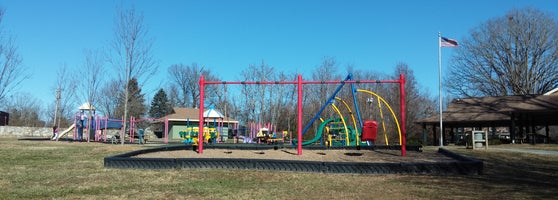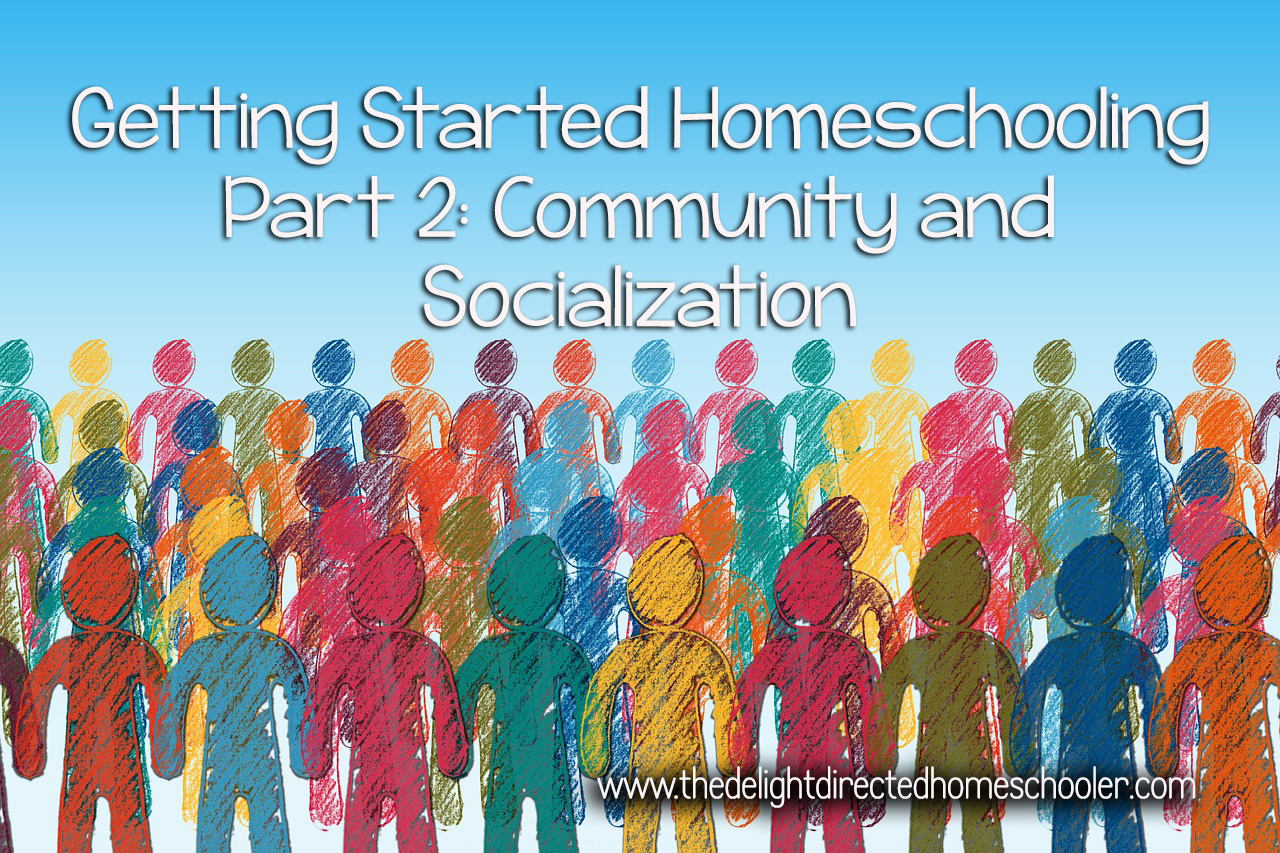
If you want to get me fired up, tell me homeschoolers aren’t socialized. I think it is one of the laziest and most ill-informed arguments against homeschooling. It is the fall back question that people immediately ask when they find out someone is homeschooled, usually coming in a form like one of these:
How do you socialize your child?
Aren’t you worried about socialization?
How will they learn to interact with people?
This question comes up so often in the homeschool arena. Sometimes I think homeschoolers should be given a manual on how to field the frequently asked questions given by well-meaning and not so well-meaning third parties. Why is this so important? There is an underlying assumption that when you homeschool, your child will stay home all day and not get any time out in the “real world.” Let me tell you that this “issue” of homeschoolers being unsocialized is a non-issue. Homeschoolers are, in fact, socialized. They spend time around other children and adults in a variety of settings.
Let’s define the terms. What is socialization? Socialization is simply that process that allows an individual to learn values, language, culture, behavior, and social skills that allow them to function in a normal community. This is a process that begins in the home. Most people don’t question if a baby, toddler, or preschooler is socialized. So… why start when they hit kindergarten age?
In my experience, Homeschooling does affect the social skills of a student… in a positive way. I have worked with a variety of ages and stages in my life. I have worked in the public schools as a pre-K teacher and an in-school suspension teacher for elementary age. I also worked in an after school program for at risk upper elementary and middle school students. I have experience with camps, VBS, youth groups, homeschool enrichment classes… In my experience, homeschool students tend to be more comfortable moving and talking within a group of mixed ages and adults. They are confident and self-aware in a way that I don’t always see in their public school counter parts. I am not saying this is a black and white issue… there are always exceptions to the rule. I work with some amazing public school kids in our youth group.
Homeschooling your child gives them the opportunity and ability to interact with people of all ages and stages including siblings, friends, adults, and community figures. My kids have gone with me on errands that many adults handle during school hours… post office, hair salon, DMV, chiropractor, doctor appointments, shopping at the mall, dropping off donations at a thrift store, the dentist, the library, grocery shopping. They have real life opportunities to observe and participate in social ettiquette on a regular basis. These are things that books and simulated situations cannot fully teach.
I do not have experience homeschooling in every state in the United States. I do, however, know that it is legal in all fifty states. I know that homeschoolers exist in all fifty states. HERE is another great resource from the Homeschool Legal Defense Association. You can look up local support groups by state and by county!
When I was leaving for college, I got together with my youth leader and some other graduating seniors. He was encouraging us to find community… to plug into the campus ministries, etc. He told us that if there wasn’t a group to plug into, we should start one! My college had some great opportunities to connect with ministry, but even still I took the advice and and started a prayer group in my dorm. It was a sweet time of connection with girls who lived together and were doing life together.
Co Ops
If you do not have an established homeschool community around you, start one! It doesn’t have to be big and flashy. It could be you and one other family. Commit to meeting together weekly or every other week. Have some co-schooling time and some free play time. When we were still young in our homeschooling life, we joined a co op with three other families. We all committed to using My Father’s World, Exploring Countries and Cultures. We agreed to meet together once a week where we would learn more about a country and do some of the things that normally get put on the back burner… like art, science, and cooking. It was so much fun. We looked forward to that time every week. We had kids ages babies through middle school. They worked together. The moms split up the teaching duties. We shared the load and had a blast.
In our county, several co ops are availbale to homeschoolers. We have groups that are more social and groups that are more academic. We have some age specific groups and some that are open to everyone. Do you due diligence. Be brave and put yourself out there! Do Facebook and Google searches and see what homeschool groups are available. The first year we were members of our local association, I observed. I read the emails sent out so we knew what was happening, but we really didn’t get involved until year two. It takes time to build community…. time that is worth the investment. Our dearest friends have come out of our homeschool community.

4 H
4-H is an amazing way to find and build community. “4-H welcomes young people from all beliefs and backgrounds, empowering them to create positive change in their communities.”
If you’re not sure where to start looking for community, you could start with 4-H. CLICK HERE to search for your local 4-H. With the restrictions brought on us right now because of COVID-19, 4-H is providing many virtual learning opportunities.
4-H offers so, so many learning opportunities. In our county, we have groups focused on barnyard animals, horticulture, public speaking, community service, astronomy, horses, science, technology, and more. We have a local extension center that offers classes for sewing, cooking, gardening, embryology, and more.

Sports
We have participated in a few sports programs. My girls have played soccer through our local Parks and Recreation Department. All of my children took karate for a time from a local homeschool mom.
In our area, there are a couple of sports leagues just for middle and highschool homeschoolers. They require a lot of time and commitment. Most are travel teams.
Look into to other local sports programs… the YMCA, Upward Sports, Club Sports, Private Lessons, etc.

Park Days
One simple and organic way to build community is creating a park day at a local play ground. This is one of my most favorite things that our local homeschoolers have done. It started very simply… a few moms wanting to meet up for a play date. I’m not even sure when it became an organized event, but when there isn’t a world wide pandemic on our hands… or incelment weather, you can find a group of homeschoolers hanging out on Mondays at one of our local parks. Most people bring some chairs and a picnic lunch or cooler full of snacks. The moms find a nice shady spot in a central location to sit and chat while the kids play. Usually there are some blankets spread out for babies and toddlers.
The park where our group meets has a play ground equipment, a walking track, a big field, and a basketball court. It is perfect for all ages. The older kids will often head to play basketball or throw a frisbee, kick a soccer ball, etc. I know four square is a popular game as well. The younger kids play together on the play ground equipment.
My girls have met some of their best friends through park day. I have deepened relationships with other moms. The conversation usually revolves around homeschooling and mom life. And you know what… I totally count it as a school day in my book. The kids are outside, playing, spending time with friends. Looks like PE, Science, Social Skills, and more rolled up into one.
More Opportunities for Community
- Music Lessons
- Field Trips
- Library Programs
- Volunteer at a Local Soup Kitchen
- Theater
- Language Lessons
- Summer Camp
- Volunteer at a Pet Shelter
- Visit a Nursing Home
- Organize a Skate Party
- Family Picnics
- Homeschool Movie Night
What opportunitities do you have for community with other homeschoolers? Do you have a local support group? Do you have friends that are homeschooling? How can you plug in for your sake and for your kids?
Other topics I’ll be covering in this “Getting Started Homeschooling Series” are:
- The Law
- Choosing Curriculum
- Establishing Schedules and Routines
- Homeschooling Preschool
- Homeschooling Elementary School
- Homeschooling Middle School
- Homeschooling High School
- De-Schooling
- Standardized Testing for Homeschoolers
What other topics would you like to see discussed???


6 Thoughts on “Getting Started Homeschooling Part Two- Community and Socialization”